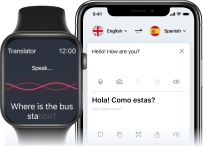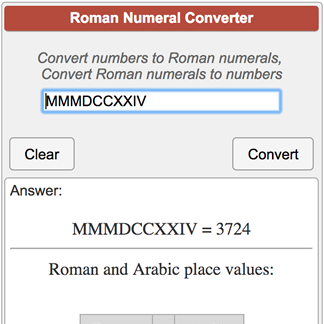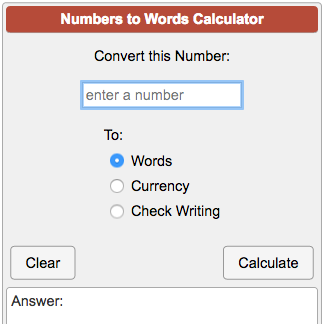Topic translate que pasa: Explore the vibrant world of Spanish language through "Qué Pasa", a phrase rich in cultural nuances and everyday utility, unlocking conversations and connections across the globe.
Table of Content
- How do you translate que pasa in English?
- Understanding \"Qué Pasa\": Definitions and Usage
- Common Contexts and Responses for \"Qué Pasa\"
- Regional Variations of \"Qué Pasa\" Across Spanish-Speaking Countries
- How to Use \"Qué Pasa\" in Conversations: Practical Examples
- Translations of \"Qué Pasa\" in Different Languages
- Cultural Significance of \"Qué Pasa\" in Hispanic and Latin Cultures
- YOUTUBE: What\'s wrong with Google Translate?
- Similar Expressions to \"Qué Pasa\" and Their Meanings
- FAQs: Answers to Common Questions About \"Qué Pasa\"
- Learning Spanish: Tips and Resources Beyond \"Qué Pasa\"
How do you translate que pasa in English?
The phrase \"que pasa\" in Spanish can be translated to \"What\'s happening?\" or \"What\'s going on?\" in English. It is an informal way to ask someone about their current situation or to inquire about any events or issues.
- First, you need to understand that \"que pasa\" is a question in Spanish, and it literally translates to \"what happens\" or \"what\'s happening.\"
- To convey the same meaning in English, you can use the phrase \"What\'s happening?\" which is an informal and commonly used expression.
- This phrase is often used to initiate a conversation and inquire about someone\'s current situation or to ask about any ongoing events or issues:
| Spanish | English |
| \"¿Qué pasa?\" | \"What\'s happening?\" or \"What\'s going on?\" |
So, if you come across the phrase \"que pasa\" in a Spanish conversation or text, you can translate it to \"What\'s happening?\" or \"What\'s going on?\" when speaking or writing in English.

READ MORE:
Understanding \"Qué Pasa\": Definitions and Usage
\"Qué Pasa\" is a common Spanish phrase that translates to \"What\"s happening?\" or \"What\"s going on?\" in English. It\"s widely used in Spanish-speaking countries as a casual greeting or to inquire about someone\"s well-being or current activities.
- Literal Translation: \"Qué\" means \"What\" and \"Pasa\" comes from the verb \"pasar,\" which means \"to happen\" or \"to pass.\" Combined, they inquire about ongoing events or states.
- Usage in Conversations: It\"s often used informally among friends, family, or acquaintances. The context can vary from a simple greeting to an expression of concern depending on the tone and situation.
- Greeting vs. Inquiry: As a greeting, it\"s akin to saying \"What\"s up?\" in English. When used to show concern, it delves deeper into asking about a person\"s current situation or feelings.
Despite its straightforward translation, the phrase carries nuances that can vary by region and context, making it a versatile tool in everyday communication within Spanish-speaking cultures.
:quality(75)/cloudfront-us-east-1.images.arcpublishing.com/elcomercio/CWYK6GYBNRHC3GASUYFVH5PO2I.jpg)
Common Contexts and Responses for \"Qué Pasa\"
The phrase \"Qué Pasa\" is versatile and can be used in a variety of situations. Here\"s how it is commonly utilized and the appropriate responses it may elicit:
- Casual Greetings: When used as a casual greeting among friends or acquaintances, it\"s similar to saying \"Hi, how are you?\" A common response might be \"Nada, ¿y tú?\" (Nothing, and you?) or simply \"Todo bien\" (All good).
- Expressing Concern: If someone appears upset or troubled, asking \"¿Qué pasa?\" shows concern. The response could be an explanation of what\"s wrong or \"Nada, estoy bien\" (Nothing, I\"m fine), if the person doesn\"t wish to share.
- Surprise or Confusion: When something unexpected happens, \"¿Qué pasa?\" can express surprise or seek clarification. Responses might detail the surprising event or clarify the confusion.
- Checking In: If you haven\"t seen someone in a while, \"¿Qué pasa?\" can be a way to check in on their life. Responses often involve major life updates or general assurances of well-being.
Understanding these contexts and the flexibility of \"Qué Pasa\" can enhance your communication skills in Spanish, making interactions more meaningful and culturally nuanced.

Regional Variations of \"Qué Pasa\" Across Spanish-Speaking Countries
The phrase \"Qué Pasa\" is used differently across the Spanish-speaking world, reflecting the rich diversity of cultures and dialects. Here are some regional variations and their unique uses:
- Spain: Often used among young people and in casual settings, carrying the same meaning as \"What\"s up?\" It\"s a relaxed form of greeting.
- Mexico: While \"Qué Pasa\" is understood, phrases like \"¿Qué onda?\" are more commonly used among friends for \"What\"s up?\". \"Qué Pasa\" might be seen as more formal or less common.
- Argentina: \"¿Qué pasa?\" is understood but less common compared to local slang like \"¿Qué onda?\" or \"¿Todo bien?\". It\"s more about inquiring into someone\"s state than a casual greeting.
- Chile: \"¿Qué Pasa?\" can be casual but is often replaced by \"¿Cómo estás?\" or \"¿Qué tal?\" for greetings. Chilean Spanish has a rich array of local expressions for informal conversations.
- Colombia: Here, \"¿Qué más?\" or \"¿Cómo vas?\" are more prevalent in casual speech. \"¿Qué pasa?\" might be used more for genuine inquiries about someone\"s situation.
- Central America: Countries like Guatemala, Honduras, and El Salvador use \"¿Qué Pasa?\" similarly to Mexico, with variations like \"¿Qué hubo?\" also being popular as casual greetings.
This diversity highlights the importance of understanding regional nuances to effectively communicate and connect with people across the Spanish-speaking world.
How to Use \"Qué Pasa\" in Conversations: Practical Examples
Integrating \"Qué Pasa\" into your conversations can add a layer of authenticity and warmth to your interactions in Spanish. Here are practical examples to guide you:
- As a Greeting:
- Person A: \"¡Hola! ¿Qué pasa?\" (Hi! What’s happening?)
- Person B: \"¡Hola! Nada mucho, ¿y tú?\" (Hi! Not much, and you?)
- To Show Concern:
- Person A: \"Te veo un poco triste. ¿Qué pasa?\" (You seem a bit sad. What’s happening?)
- Person B: \"Ah, es solo que estoy un poco cansado.\" (Ah, it\"s just that I\"m a bit tired.)
- Expressing Surprise:
- Person A: \"¿Qué pasa? ¿Por qué está todo cerrado hoy?\" (What’s happening? Why is everything closed today?)
- Person B: \"Es un feriado nacional.\" (It’s a national holiday.)
- In Casual Conversation:
- Person A: \"¿Qué pasa con el proyecto?\" (What’s happening with the project?)
- Person B: \"Vamos por buen camino. Deberíamos terminarlo a tiempo.\" (We\"re on the right track. We should finish it on time.)
These examples demonstrate the versatility of \"Qué Pasa\" in fostering engaging and meaningful conversations in various contexts.
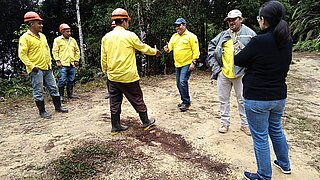
_HOOK_
Translations of \"Qué Pasa\" in Different Languages
\"Qué Pasa\" is a phrase that resonates across cultures, often finding its equivalents in various languages. Understanding these translations can bridge communication gaps and foster connections. Here are translations of \"Qué Pasa\" in several languages:
- English: \"What\"s happening?\" or \"What\"s going on?\"
- French: \"Qu\"est-ce qui se passe?\" or \"Quoi de neuf?\"
- German: \"Was passiert?\" or \"Was geht ab?\"
- Italian: \"Che succede?\" or \"Cosa sta succedendo?\"
- Portuguese: \"O que está acontecendo?\" or \"Qual é?\"
- Russian: \"Что происходит?\" (Chto proiskhodit?)
- Chinese (Mandarin): \"发生了什么?\" (Fāshēngle shénme?)
- Japanese: \"何が起こっているの?\" (Nani ga okotte iru no?)
- Korean: \"무슨 일이야?\" (Museun iriya?)
- Arabic: \"ما الذي يحدث؟\" (Ma aladhi yahduth?)
This global overview shows that curiosity about others\" lives and happenings is a universal concept, making \"Qué Pasa\" a truly global phrase.

Cultural Significance of \"Qué Pasa\" in Hispanic and Latin Cultures
The phrase \"Qué Pasa\" goes beyond its literal meaning to embody the warmth, openness, and communicative spirit of Hispanic and Latin cultures. Its significance is deeply rooted in social interactions and cultural expressions:
- A Sign of Inclusivity: \"Qué Pasa\" is more than a greeting; it\"s an invitation to share one’s life and moments. It reflects the inclusive nature of Hispanic and Latin communities, emphasizing the value of personal connections.
- Expression of Concern and Solidarity: When used to inquire about someone\"s well-being, it conveys genuine concern and solidarity. It\"s a way of saying, \"I\"m here for you,\" reinforcing community bonds.
- Social Lubricant: In casual and informal settings, \"Qué Pasa\" serves as a social lubricant, easing introductions and fostering a friendly atmosphere. It helps in breaking the ice and starting conversations.
- Cultural Identity Marker: The phrase encapsulates aspects of Hispanic and Latin identity, showcasing the importance of language in cultural expression and belonging. It\"s a symbol of cultural pride and unity.
- Versatility in Use: Its adaptability across various contexts—ranging from casual greetings to expressions of concern—highlights the dynamic nature of Hispanic and Latin communication styles.
Overall, \"Qué Pasa\" is emblematic of the cultural values of community, openness, and warmth that are cherished in Hispanic and Latin societies, making it a phrase that resonates deeply within these cultures.
What\'s wrong with Google Translate?
Discover the limitless possibilities of communication with Google Translate! Unlock the power to understand and connect with people from all around the world through this groundbreaking tool. Watch the video to witness the magic of language bridging like never before.
TheGrefg discovers what happens when you type \"GALLO\" in Google Translate #Shorts #TheGrefg
Step into the world of gaming and entertainment with TheGrefg! Dive into epic gameplay, ingenious strategies, and thrilling adventures that will leave you on the edge of your seat. Watch the video to witness this gaming sensation in action and join the millions of fans already hooked!
Similar Expressions to \"Qué Pasa\" and Their Meanings
The Spanish language is rich with expressions that convey curiosity, concern, or a simple check-in, similar to \"Qué Pasa\". Understanding these phrases can enhance your communication skills and cultural appreciation. Here are some examples:
- ¿Qué tal? - A versatile phrase meaning \"How are you?\" or \"How\"s it going?\" Used in a similar manner to \"Qué Pasa\", but can be slightly more formal or generic.
- ¿Cómo estás? - Directly translates to \"How are you?\". It\"s a common and polite way to inquire about someone\"s well-being.
- ¿Qué onda? - A more informal and colloquial expression, popular in Mexico, meaning \"What\"s up?\". It\"s used among friends and people of the same age.
- ¿Cómo va? - Literally means \"How\"s it going?\". This is a casual way to ask about someone\"s life or how their day is progressing.
- ¿Qué hay? - Short for \"¿Qué hay de nuevo?\" (What\"s new?), asking for any news or updates. It\"s informal and commonly used in various Spanish-speaking countries.
- ¿Todo bien? - Translates to \"Everything good?\". A quick and easy way to check in on someone\"s state or if everything is okay with a situation.
These expressions, like \"Qué Pasa\", are integral to daily communication in Spanish-speaking cultures, each adding a layer of nuance to conversations.

FAQs: Answers to Common Questions About \"Qué Pasa\"
- Is \"Qué Pasa\" formal or informal?
- \"Qué Pasa\" is generally considered informal and is most commonly used among friends, family, or peers. It\"s a casual way to ask \"What\"s happening?\" or \"What\"s up?\"
- Can \"Qué Pasa\" be used with strangers?
- While it can be used with strangers in a casual setting, it\"s more polite to use \"¿Cómo está?\" (How are you?) when addressing someone you don\"t know well or in formal situations.
- How do you respond to \"Qué Pasa\"?
- Responses can vary from \"Nada, ¿y tú?\" (Nothing, and you?) to sharing news or how you\"re feeling. It\"s a flexible greeting that can open up a conversation.
- Is \"Qué Pasa\" used in all Spanish-speaking countries?
- Yes, \"Qué Pasa\" is understood across Spanish-speaking countries, but its usage and popularity can vary. Some regions might prefer other local expressions for casual greetings.
- Can \"Qué Pasa\" be considered rude?
- Not typically, but context matters. Using it in a very formal setting or with someone in a much higher position might not be appropriate. Tone and familiarity also play a key role.
- Are there different ways to spell \"Qué Pasa\"?
- The correct spelling is \"Qué Pasa\", with an accent on the \"e\" in \"Qué\". It\"s important to include the accent to maintain the phrase\"s meaning and proper Spanish grammar.
These FAQs aim to clear up common misunderstandings and provide insight into the versatile and widely used phrase \"Qué Pasa\".
READ MORE:
Learning Spanish: Tips and Resources Beyond \"Qué Pasa\"
Mastering Spanish goes beyond learning phrases like \"Qué Pasa\". Here are some effective tips and resources to enhance your language learning journey:
- Immerse Yourself in the Language: Engage with Spanish media such as films, music, and books. Try to incorporate Spanish into your daily routine for natural learning.
- Practice Regularly: Consistent practice is key. Use language learning apps, attend language exchange meetups, or find a conversation partner to practice speaking.
- Understand the Culture: Learning about the cultures of Spanish-speaking countries can provide context to the language, making it easier to understand idiomatic expressions and customs.
- Use Online Resources: Websites like Duolingo, Babbel, and Rosetta Stone offer structured lessons that cater to all levels. Additionally, YouTube channels and podcasts designed for Spanish learners can be very helpful.
- Take Formal Classes: If possible, enroll in Spanish classes at a local community college, university, or language school. Structured learning environments can provide a comprehensive understanding of grammar and vocabulary.
- Travel: If you have the opportunity, visiting a Spanish-speaking country can drastically improve your language skills through immersion and real-life practice.
Combining these methods will not only improve your Spanish but also deepen your appreciation for the rich cultures and histories of Spanish-speaking countries.
Embarking on the journey to understand \"Qué Pasa\" opens the door to rich Spanish linguistic and cultural landscapes, enhancing connections and broadening horizons in the vibrant world of Spanish communication.

_HOOK_






